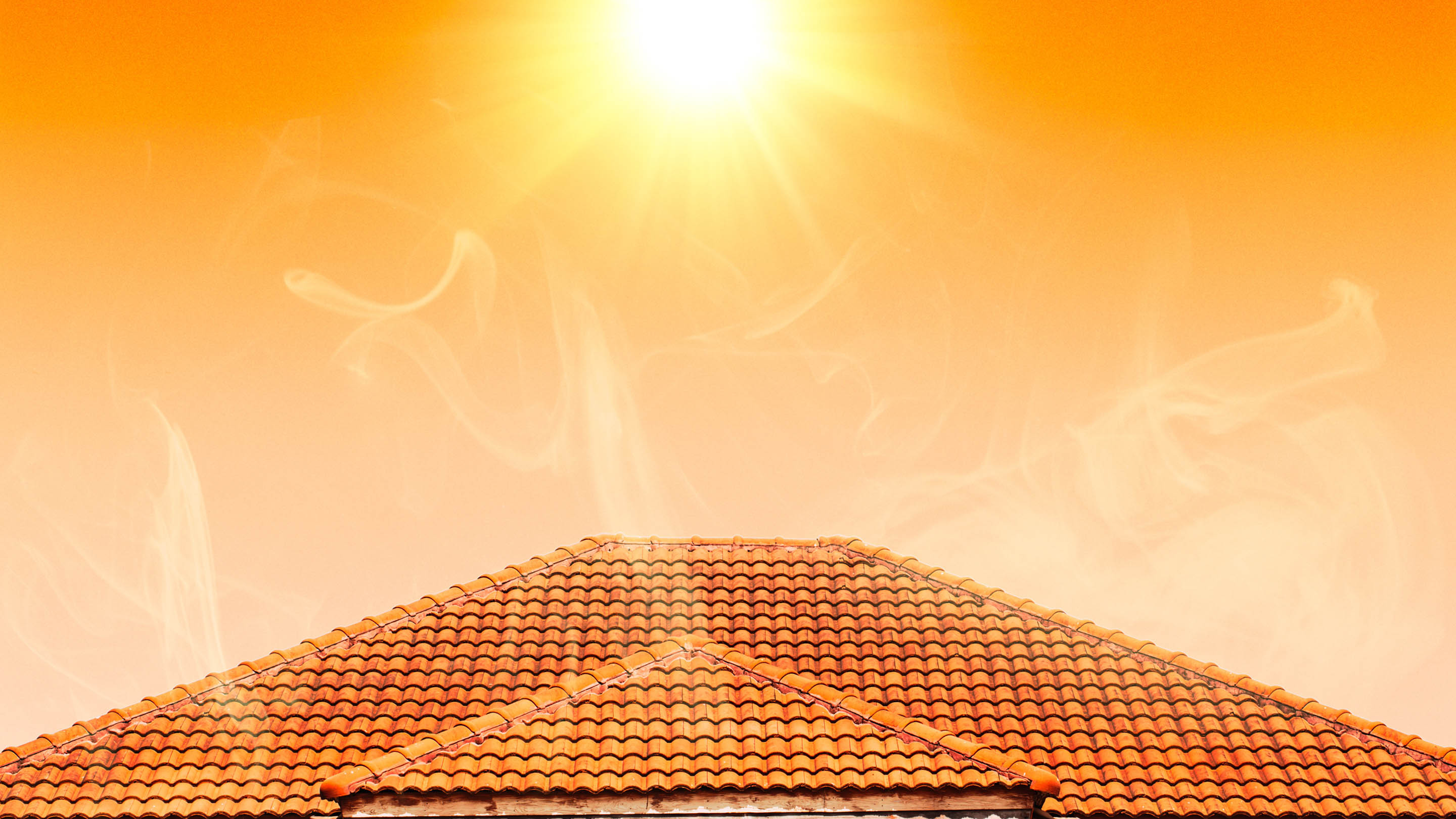Cracked roofs, garden fires, and overheating. It’s getting hot in here, so make sure your home and garden knows how to handle it.

By Tom Pilkington
Summer heatwaves are becoming the norm in the UK. Experts predict that London in 2050 will be as hot as the Barcelona of today Footnote [1]. While some sun worshippers may see this as a positive impact of climate change, there will be far-reaching consequences, not least the impact it will have on our homes.
Hot houses
Heatwaves will get longer and more frequent over the summer months and the reality is our homes aren’t prepared for them. Most houses in the UK have been designed to keep heat indoors so we can be nice and cosy in the winter – they’re not designed for extreme heat. In England, a quarter of homes are currently at risk of overheating Footnote [2], while 570,000 new homes have been built since 2016 they won’t be able to withstand the rising temperatures we face Footnote [3].
Buildings built from concrete, for example, absorb more of the sun’s heat, making it more likely to overheat. This is uncomfortable, not only for the residents, but for the building itself. Excess heat can cause cracks and worn surfaces to deteriorate, while paint will fade faster too. There’s no place to hide and there’s no factor 50 for your roof, which can be weakened from warping and cracking caused by exposure to sunlight.
Cool off, prevent damage
Home insurance policies don’t cover natural wear and tear, so it’s important that you look after your home:
- Make sure your property is well maintained – longer and more frequent periods of extreme heat will take its toll on building materials, meaning it’ll need more maintenance. If a storm arrived and your roof was already cracked, you may not be able to claim if poor weather made an existing problem worse.
- Create shade – make the most of morning air circulation, but close curtains to keep the house as cool as possible. This is a technique used by people in hotter countries around the world – you’ll feel all cultured and continental, we promise.
- Open windows to make the most of any circulating air but be mindful of thieves.
- Ventilation – high humidity mixed with a lack of air moving around can lead to more mould growth, so be sure to ventilate your home.
Garden fires
The sound of sizzling sausages is lovely and summery, but as the weather becomes warmer and more Brits are dusting off their barbeques and loading up on firelighters, there’s greater risk of garden fires. We’ve seen a rise in claims relating to garden fires in recent years Footnote [4] and often they’re a result of barbeques, bonfires, and fire pits that have got out of control.
Most standard home insurance policies include limited cover for your garden and its items in the event of a fire, as long as reasonable care and precaution is taken to prevent it spreading. If you’re lucky enough to have a garden filled with wonderful but expensive items like a hot tub, then it’s best you check your policy’s single-item limit, as you may need to insure these separately.
Here are some ways to be safer with fire:
- Don’t leave fires unattended
- You might be tempted to jump in the paddling pool, but it only takes a few seconds for a fire to get out of control, so make sure there’s always someone watching over it.
- Be careful with firelighters
- Starting a fire with your bare hands would make your caveperson ancestors proud, but let’s be honest, most of us use firelighters or an equivalent to help us out. However, these are powerful tools and can quickly get out of hand if not managed carefully.
- Dispose of barbecues, cinders, and matches responsibly
- This is an important one. Garden fires are often caused by cinders that are dumped in the bin or a bonfire while still hot. Make sure that coals aren’t glowing before you dispose of them and be careful where you discard matches or cigarettes.
- Be mindful of the weather
- If the weather is dry then grass and plants will catch fire much more easily. Wind can also spread flames quickly and over a large area, so be sure to respect Mother Nature.
- Keep a bucket of water or sand on stand-by
- It’s better to be safe than sorry. If the flames start to lick your geraniums instead of your burger patties, then this will help put them out.








